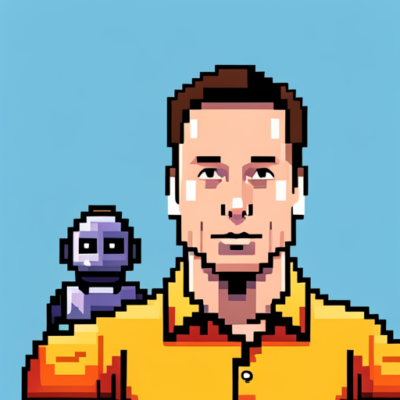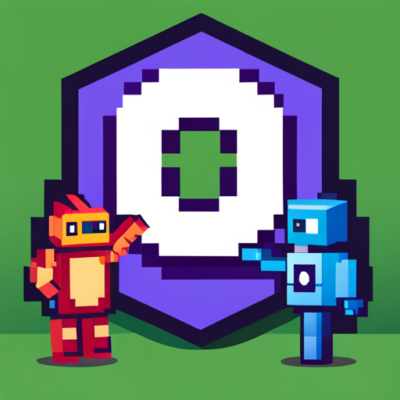
Nvidia and Covariant have introduced groundbreaking AI platforms aimed at transforming healthcare and robotics. They offer a suite of tools and models to enhance productivity and advance the capabilities of researchers, medical practitioners, and robots across various industries.
At a glance
- Nvidia introduced 25 microservices at the GTC AI conference to enhance productivity workflows in healthcare.
- The microservices support pharmaceutical companies, doctors, and hospitals in implementing generative AI solutions.
- The solutions suite includes drug discovery tools, patient data collection, and smarter digital assistants.
- Specialized AI models like ESMFold and DiffDock are notable Nvidia offerings.
- Covariant unveiled RFM-1, a platform for equipping robots with advanced language processing capabilities for “human-like” reasoning skills.
The details
Nvidia and Covariant have recently made waves in the tech industry with the launch of their groundbreaking AI platforms, which aim to transform the healthcare and robotics sectors, respectively.
At the GTC AI conference, Nvidia introduced 25 microservices tailored to enhance productivity workflows in healthcare.
These microservices are designed to support pharmaceutical companies, doctors, and hospitals in implementing generative AI solutions.
Researchers and medical practitioners can integrate these AI tools into new and existing applications, allowing for cross-platform utilization.
The suite of solutions includes tools for drug discovery, patient data collection for early disease detection, and smarter digital assistants.
Notable offerings include specialized AI models like ESMFold for protein structure prediction and DiffDock for understanding drug molecule interactions.
Software development kits like NeMo and Parabricks are also part of the package.
Kimberly Powell, Nvidia’s vice president of healthcare, highlighted the significance of these advancements, noting that computer-aided drug discovery is now possible due to the computational representation of biology and chemistry.
Approximately 50 companies, including industry giants like Amgen and V7, are already leveraging Nvidia’s healthcare microservices.
David M. Reese, Amgen’s executive vice president and CTO, emphasized the transformative impact of generative AI on drug discovery, emphasizing the seamless integration of sophisticated models into the antibody design process.
On the other hand, Covariant unveiled RFM-1, a platform designed to equip robots with advanced language processing capabilities for “human-like” reasoning skills.
Trained on a diverse range of data sources such as text, images, video, robot actions, and physical measurements, RFM-1 can predict how objects will respond to robotic actions using AI-generated videos.
This enhances robots’ comprehension of the English language for improved human-robot collaboration.
Covariant’s CEO emphasized the importance of Robotics Foundation Models having access to extensive high-quality multimodal data.
The platform addresses challenges in manual-based robotic programming by enabling robots to make autonomous decisions and self-reflect on their actions to enhance their behavioral patterns.
RFM-1 has the potential to expand the applications of robots across various industries, as it is trained on a substantial dataset enriched with physical robot interactions.
Covariant believes that this platform represents a significant advancement in the development of generalized AI models for robotics.
In conclusion, Nvidia and Covariant’s innovative AI platforms are set to revolutionize the healthcare and robotics sectors, offering cutting-edge solutions that could redefine industry standards and drive significant advancements in their respective fields.
Article X-ray
Sources
Here are all the sources used to create this article:
Facts attribution
This section links each of the article’s facts back to its original source.
If you suspect false information in the article, you can use this section to investigate where it came from.
| aibusiness.com |
|---|
| – Nvidia has launched 25 microservices at their GTC AI conference to improve productivity workflows in the health care industry – |
| The microservices are designed to assist pharmaceutical companies, doctors, and hospitals in introducing generative AI solutions – Researchers and medical practitioners can integrate the AI microservices into new and existing applications and run them anywhere -The suite contains solutions that could help with drug discovery, gather better patient data for early disease detection, and implement smarter digital assistants – Access to specialized AI models like ESMFold for protein structure prediction and DiffDock for understanding how drug molecules interact with targets is included – Software development kits like NeMo and Parabricks are also included – Kimberly Powell, Nvidia’s vice president of health care, stated that computer-aided drug discovery is now possible due to representing biology and chemistry in a computer – Nearly 50 firms, including Amgen and V7, are already using Nvidia’s health care microservices – David M. Reese, Amgen’s executive vice president and CTO, mentioned that generative AI is transforming drug discovery by allowing sophisticated models to be built and seamlessly integrated into the antibody design process. |
| aibusiness.com |
|---|
| – Covariant has launched a new large language model platform for robots -The platform provides robots with “human-like” reasoning capabilities – RFM-1 was trained on text, images, video, robot actions, and physical measurements -The platform uses AI-generated videos to predict how objects will react to robotic actions – It gives robots an understanding of the English language for human-robot collaboration – Covariant’s CEO stated that Robotics Foundation Models require access to a vast amount of high-quality multimodal data – The platform addresses a problem with manual-based robotic programming – Robots can make autonomous decisions and self-reflect on actions to improve behavior with RFM-1 – Covariant’s platform broadens robots’ industry applications -The platform is trained on a large dataset rich in physical robot interactions – The company believes the platform represents a significant leap forward in building generalized AI models. |












